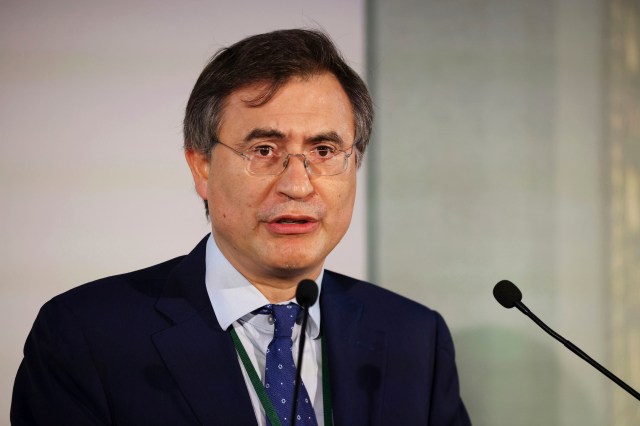British Prime Minister Rishi Sunak revealed on Monday that the United Kingdom is initiating a novel science initiative aimed at supporting the advancement of flood-resistant rice, disease-immune grains, and other crops that exhibit greater resilience to climate change.
During a one-day Global Food Security Summit in London, Sunak, alongside dignitaries, officials, and entrepreneurs from approximately 20 nations, advocated for global leaders to leverage artificial intelligence and other state-of-the-art technologies to combat worldwide hunger.
Sunak stressed the necessity for a “fundamental shift” to tackle the escalating food security crisis exacerbated by climate change. He underscored the pivotal role of science and announced the establishment of a “virtual technology hub” in the UK to unite international researchers focusing on developing robust crops. This UK hub will be integrated into the CGIAR global research partnership.
Addressing the delegates, Sunak highlighted, “Climate change, conflict, and population growth present increasingly formidable obstacles to food supplies.” He emphasized the imperative of proactively addressing food security challenges and leveraging the full potential of science and technology to ensure the resilience of crops against threats like conflict, drought, and floods.
The United Arab Emirates and Somalia, in collaboration with the Children’s Investment Fund Foundation and the Bill & Melinda Gates Foundation, co-hosted the summit.
Meanwhile, demonstrators advocating for Medical Aid for Palestinian protesters, who were calling for a ceasefire in the Israel-Hamas conflict to facilitate the delivery of essential food and humanitarian aid to Gaza, staged a protest outside the conference venue.
Melanie Ward, the organization’s CEO, expressed cautious optimism about the global discussions on addressing food security challenges. However, she raised concerns about the dire situation in Gaza, where 2.2 million people are at risk of starvation, urging stakeholders to prioritize this critical issue.
The aid received in the recent month is barely adequate to sustain Gaza for approximately two typical days due to the ongoing conflict, leaving less than 10% of the required food supplies to reach the vulnerable population.
Sunak appealed to Israel to authorize “immediate and substantial humanitarian pauses” to facilitate the delivery of food, fuel, and medical supplies, despite the UK refraining from explicitly calling for a ceasefire as the US has done.
He remarked, “The situation is truly dire and deteriorating rapidly.”






